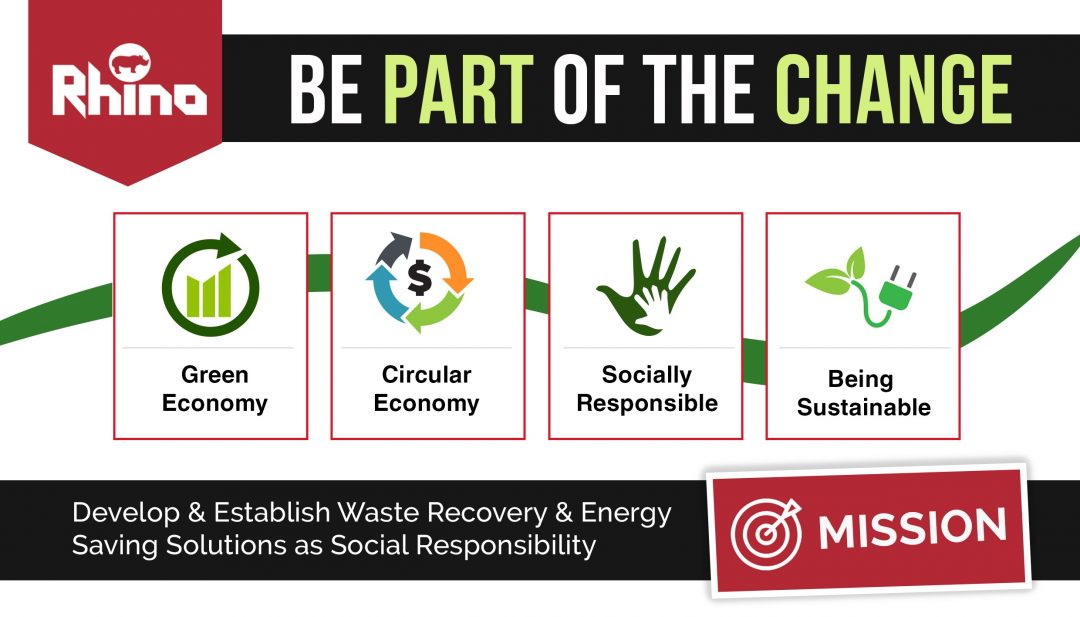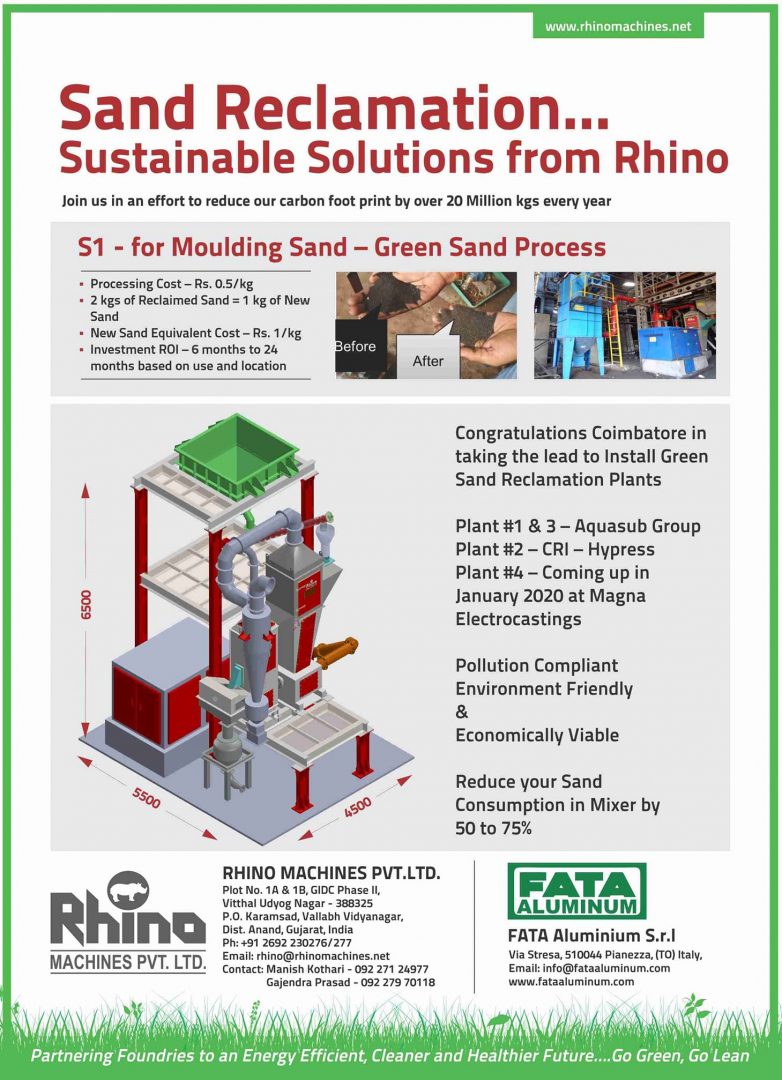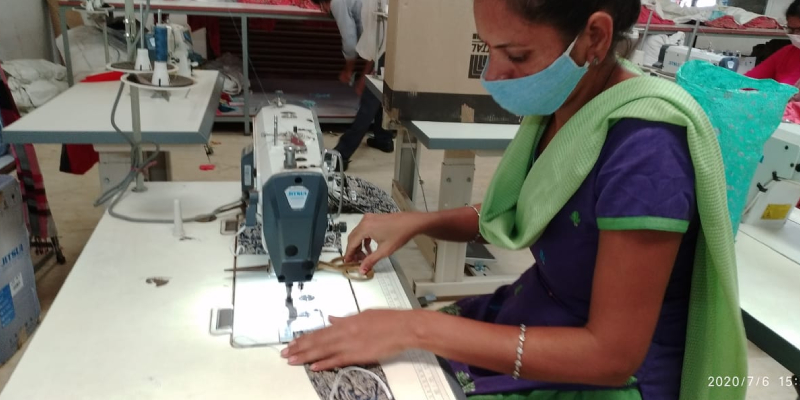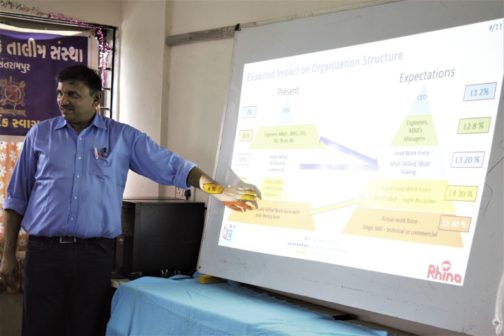Rhino Machines Pvt. Ltd. commenced in 1983 as the brainchild of Mr. R. C. Kothari, and has been led by his son, Mr. Manish Kothari since 1991. Established as a project consultancy firm, Rhino evolved into a manufacturing firm producing cutting edge foundry equipment with world-class technology. With the tagline “Meeting challenges is a way of life”, Manish discusses their patents, international endeavours and a drive towards sustainability through their practice.
Your patent for waste recovery in 2000 comes across as a very interesting and efficient initiative. What led to the development of this approach? Can you elaborate more on this?
In 1998-99, following our mission for waste recovery and energy efficient solutions as a social responsibility, we came across the need to address CO2 gas waste produced in the sodium silicate bonded sand process in the foundry industry. The moulding process was cheaper and used extensively in India, but lacked solutions to reclaim sand after its first use.
Inspired by mechanical abrasion principles, and with the experience of our founder Mr R C Kothari as a metallurgist, we found a possibility. We started with a small pilot of 20 kgs, and found a foundry to participate in the development of this technology. After it’s success, we sized it up to produce a larger capacity that was documented and patented later. Till date we have successfully supplied more than 60 machines in different parts of India where Rhino provided technical support to stabilize the process. One of our customer testimonials states that during riots, since they could reuse their own sand, the production did not stop.
The key technology was simple; rub sand grains against each other and use their inherent abrasion properties to remove the coating which made the silica sand unusable. With an inkling for commerce, we documented the costs, made viability calculations, and found that the investment could be recovered between 6 months to 2 years depending on the cost of virgin silica sand.
The future of SPB can be projected as a new green recycled and recyclable material that uses the advantage of plastic, sand and dust; does not degrade over 1000 years, augment resource efficiency and reduce waste substantially.
What led to the alignment with Fata Italy? How will Silica Plastic Blocks be more beneficial than other materials? What is the future for these blocks?
Since the CO2 reclamation experience, we had been on the lookout to address the Green sand (water bound bentonite/clay) process used by more than 50% of the foundry industry. Fata Italy had the experience required to handle large green sand reclamation plants, and our pursuance found a way to connect to them, resulting in a MoU signed in 2013 to work together. The relationship was based on manufacturing in India, so the technology could be absorbed, made affordable and could be easily implemented. In the year 2015, we made a pilot plant, and when we commissioned the first commercial plant in 2016, we came across another issue – residual dust. While we could recover 70-80% of the material, we were left with 20-30% waste dust, which had disposal challenges. Being less than 100 micron in size, the dust could fly when dumped and add to the pollution problem. Recognizing the issue, Rhino’s R&D division started working towards finding a solution in 2017-18. After testing with conventional fly ash or red brick to use a part of the dust, we came across a technique to use plastic with sand. It took us about a year to find the right combination and another to optimize the process and establish the economics.
We experimented and established a bonding of unsegregated plastic waste that constitutes – polyethylene, polypropylene, hdpe, ldpe and a difficult multi-layer plastic package in proportion of about 20% to 30% (tested upto 50%) with dust waste from foundry and the discarded sand waste. The SPB (Silica Plastic Block) is produced from 100% waste and can be recycled and moulded again. This helps to raise our resource efficiency in 2 ways – by reusing the resources and reducing the consumption of new materials. As I write we continue to explore different possibilities with SPB. We started from conventional bricks, and moved to multi-purpose paver tiles with distinct designs, varied sizes and diverse applications.
We have initiated a research on SPB to establish its properties as a composite material, so that it can be used for diverse applications such as manhole covers, gratings, benches, table tops, interlocking bricks and engineering applications. The future of SPB can be projected as a new green recycled and recyclable material that uses the advantage of plastic, sand and dust; does not degrade over 1000 years, augment resource efficiency and reduce waste substantially.
Rhino Machines have collaborated with various different national and international agencies in regards to your drive towards sustainability. Can you elaborate on your different affiliations and how they aided your practice?
We have been one of the enterprises selected for UNIDO (United Nations Industrial Development Organisation) – Ministry of MSME program for clean technology, as part of the sustainable development agenda of the United Nations. In 2015 and 2016 we were one of the top 6 semi-finalists in India and the only one to be selected in the foundry industry. The engagement with UNIDO led to participation in understanding the relevance of MSME in 2030, which led to getting connected to UNCTAD (United Nations Conference on Trade and Development) flagship program Empretec. This program was recognized in UNGA (UN General Assembly) in nov 2018 to play a key role in capacity building, entrepreneurship development and impact sustainable development goals.
In the year 2015 Rhino partnered with Anwesha Foundation to install the Swiss Vocational Education Program (under license) in its premises to meet the gap in quality of manufacturing workforce. For over 6 years, the entire program continues to be funded by the partners of Anwesha Foundation, without any government grant, to maintain the quality of education, rather than churning out quantity.
In the same year, Rhino helped form Meemansa in collaboration with Priyanka Bapna, who had 20 years of experience in Textile Design and Manufacturing, but struggled to scale up. This association allowed Rhino and Meemansa to absorb the technology developed by IIT Mumbai – Duraprot® and Duraprot Plus® during the pandemic. This is a combination of simple organic and natural chemicals used to upgrade ordinary cotton fabric to N98 (98% filtration – better than N95), hydrophobic (like surgical masks), self disinfecting (deactivates Corona Virus and Bacteria), reusable and washable masks. One of these masks can replace the disposal of 100 surgical masks, and even after the efficacy is over, they are biodegradable. Meemansa carries a similar vision – a zero waste mission and environment consciousness. All these affiliations have led to the growth of our organisation in terms of brand, community contribution and the understanding of being responsible enough for sustainable development goals even as an MSME.
How do foundry and casting products affect trends in architecture? What has been your contribution for the same?
Foundry and castings do not directly impact the architectural sector, but foundry is at the core of any infrastructure. Our recent innovation using dust from foundry and building SPB blocks for architecture is perhaps the first direct connection between foundry and architecture.
How has the ongoing pandemic affected the manufacturing industry? Are there any modifications made in products, requirements or technologies due the same?
The immediate impact of pandemic on non-medical industries has been severe. The first set of manufacturing industries to get affected was the textile industry, we had nearly 9 months of zero supply to our primary customer base. However it was the collaboration with IIT Mumbai for social awareness through which we started production of masks, both ordinary and medicated, that allowed us to keep people occupied in this otherwise depressing scenario.
In our education system, we quickly shifted to online training, and continued our small interventions. We used this opportunity to revise our plans to upgrade their ITI training and give them a new course, also increasing our engagement with engineers and providing practical boot camp at Rhino’s premises. In our machinery manufacturing segment, we invested time to understand and strengthen our systems, preparing for an expected boom in the market. We developed our SPB project further, prepared business models, understood the market size and possibilities.
What are the future endeavours for Rhino Machines in terms of design process, upcoming projects, research and initiatives taken that we should look forward to?
There are multiple aspects we are working on, while keeping ourselves aligned to the core vision, values and mission. We are preparing to scale up the business model for Silica Plastic Blocks and expect 5 projects to be implemented by March 2022. We have also initiated joint research with academia, and expect to complete the same by March 2022. We are preparing for a cluster model in sand reclamation, and anticipating a good demand since the resource crunch and costs of input materials in addition to the pollution requirements will be driving this business. We are extending our MultiFlex Moulding lines to global markets with automation to grow our business.
We are continuing our intervention in community development with the Empretec Program, Industry Associations, NGOs and the Academic community. Investing in building models for education, waste to wealth solutions in our areas of expertise and to partner with others to extend the models jointly is on our list of priorities. We have adapted the principle – when the tide rises, all ships will rise, and we are putting our effort on working with inputs which will raise the tide, resulting in the growth of our organisation.
All these affiliations have led to the growth of our organisation in terms of brand, community contribution and the understanding of being responsible enough for sustainable development goals even as an MSME.
Rhino Machines Pvt. Ltd.
Visit: www.rhinomachines.net
E-mail: rhino@rhinomachines.net
Contact: +91-2692-230276/230277
Biltrax Construction Data is tracking 17000+ projects on its technology platform for its Clients. Email contact@biltrax.com to subscribe and generate business leads.





















